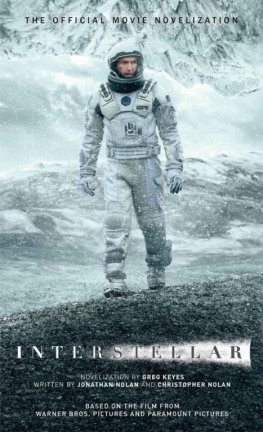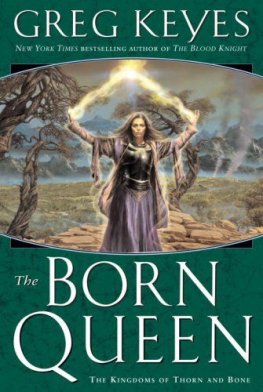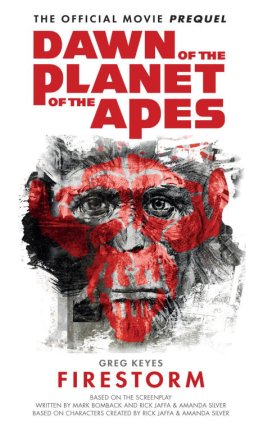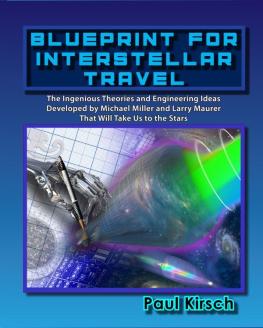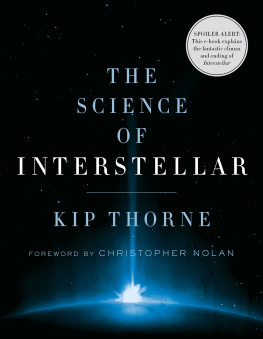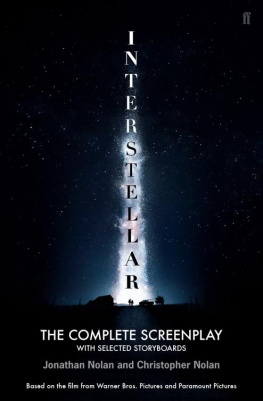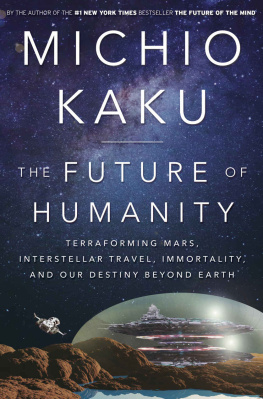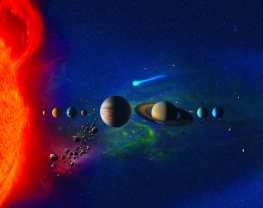Greg Keyes
INTERSTELLAR
THE OFFICIAL MOVIE NOVELIZATION
For Danielle Elizabeth Keyes and Alan Yin.
Best of luck on your own adventure.

First comes darkness, the constant hushed murmur of wind through brittle leaves. And then a womans voice, quavering pleasantly with age.
Sure, she says. Sure, my dad was a farmer back then.
Then the darkness is gone, and all is golden and green as the wind stirs the tassels of waist-high young corn, rattling the stalks as it picks up, as if somewhere a storm is sending notice.
Like everybody else back then, the woman continues. All at once she is visible against a dark background. The lines of laughter and grief etched into her face, the relief map of a long life.
Of course, she says, he didnt start that way.
The controls jerked in his hands as if they were alive.
Outside the cockpit, white mist streaked by. He could see the nose of his craft, but nothing beyond it.
Computer says youre too tight. The radio crackled in his ear, the static of shredding ions from the air threatening to overwhelm the signal.
I got this, he protested, despite the fact that his instruments were telling him impossible things.
Crossing the straights, control said. Shutting it down. Shutting it all down.
No! he said. We need to power up
He was spinning like crazy now, black and red, black and red, and suddenly the controls ripped free of his hands, and he screamed
* * *
Cooper sat up in the bed, drenched in sweat, and in his mindstill saturated in dreamhe was still spinning, still blind in the mist. Panting, he felt the air rushing into and out of his lungs as he tried to control it, to take control of something
Dad? Dad!
He turned at the familiar voice, and saw her, in the faint first light of dawn coming through his window. His daughter. The whirlwind of his nightmare faded, and there was only the familiar room, the scent of old wood and mothballs coming from his bedclothes.
Sorry, he murmured. Go back to sleep.
She just stood there, though. Murph, as stubborn as ever.
I thought you were a ghost, she said.
Cooper saw she was serious.
Theres no ghost, Murph, he mumbled.
Grandpa says you can get ghosts, she persisted.
Grandpas a little too close to being one himself, Cooper grunted. Back to sleep.
Murph still wasnt ready to go. The early morning light picked up the red in her hair, and her green eyes were full of concern. And obstinacy.
Were you dreaming about the crash? she asked.
Back to sleep, Murph, he said, trying to be firm. Murph hesitated, then finally, reluctantly turned and shuffled back through the door.
Rubbing his eyes, Cooper turned to the window. Outside lay a vista of young corn, its leaves dark green, still only waist high. Dawn was painting the tops of the stalks a vivid red-gold. A gentle breeze sent ripples through it, and in his sleep-blurred vision he felt as if he were gazing upon a vast sea, stretching off to the horizon.
Corn, sure, the old lady says. But dust. In your ears, your mouth. We move from her to an old mans face, his watery eyes searching through decades and distance for the road marks left behind him.
Dust just everywhere, he says, nodding. Everywhere.
* * *
Donald swept the dust from the farmhouse porch, knowing in the back of his mind that it was pointless, that in a matter of hours it would be covered again. Yet simply surrendering to it seemed even more pointless.
This porchand the sturdy two-story farmhouse to which it was attachedhad sheltered generations. It deserved care. Wind and dust had nearly gnawed through the last coat of white paint, and it wasnt likely to get a new coat anytime soon. And it needed bigger repairs than that, work that he was too old to do and Cooper was too busy to see to.
But he could sweep the porch. That much his aging body was still capable of doing. He could beat back the dust, although each assault was a temporary victory at best.
He straightened up and surveyed his work, then loosened the kerchief that stood between the grime and his lungs as he turned and swung open the farmhouse door.
So much for the porch, he thought. It was time to fix breakfast. He made his way to the kitchen, running his fingers through what little bit of thin hair remained on his balding head, feeling the grit matted in it.
Inside, he went to the table, where bowls lay upside down, covered in a thin film of dust, and turned their clean insides up. Then he turned his attention to the stove.
For Donald, the kitchen was probably the most comforting room in the house. His wife had once stood in front of the sturdy enameled ivory oven and stovetop, and in time his daughter had joined her, at first straining on her tiptoes to stir the pot. Then later, as a strong young woman with both feet firmly planted, feeding a family of her own. Both women now gone, but both still here, somehow.
He put the grits on and stirred them as they came to a boil, then turned down the heat so they would simmer, remembering times when breakfast had been a bit more varied. Oatmeal, waffles, pancakes. Fruit.
Now, mostly grits. And without a lot of the things that made grits worthwhilethe butter, sorghum molasses, bacon for Chrissake. But there wasnt much point in bawling about the things that were gone, was there? And there was plenty good that remained. Time was, a bowl of plain grits was more than most people could hope for in a day. Those days were past, too, and he didnt miss them in the slightest.
Count your blessings, old man. He could almost hear the old woman saying it. No sense moaning bout what you cant have. And by the time the grits were done, counting the better end of his blessings was easy enoughthey were all right there in front of him.
There was his grandson Tom, of course. Donalds grandson was always there when food hit the table. His fifteen-year-old body seemed to travel on two hollow legs. The boy was always hungryand so he should be, because he was a hard worker, too. He didnt complain about the lack of diversity in breakfast.
Grits were fine with Tom.
His ten-year-old granddaughter Murph was a bit slower to arrive. Her coppery hair was wet, and she still had a towel around her neck from the shower. At times he thought her the spitting image of her mother, but then she would turn in such a way, or say a particular thing, and he could see her father there. Like now. She was fiddling with the pieces of something or other as she sat down. Which she oughtnt to be.
Not at the table, Murph, he admonished, without any heat in his voice.
But Murph more or less ignored him and looked instead to her father, who had been there all alongbefore either of his kidsgetting his coffee. Cooper was Donalds son-in-law.
He was a good man. He was a decent farmer, too, very much the guy you wanted when you needed a twenty-year-old combine put back in working condition with a handful of wires and an old toaster. Or wanted your solar array to pull in another fifteen percent. He was a whiz with machines. And his daughter had loved him. If he couldnt have his daughter, Cooper was the next best thing, he figured. The man she loved, the children she made.
Dad, can you fix this? Murph asked Cooper.
Cooper came over to the table and reached for the pieces of plastic she had pinched between her fingertips, a frown presenting on his lean face. Donald saw now what it wasthe broken model of an Apollo lunar lander.

